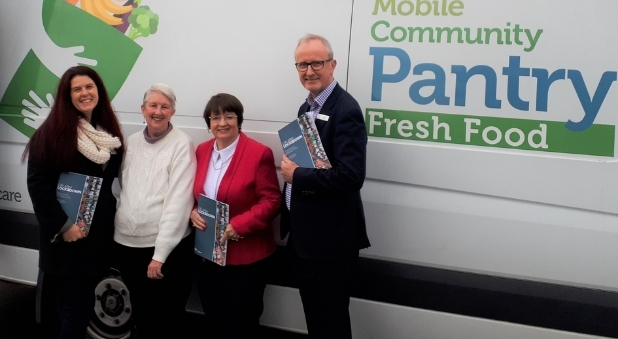There is strong evidence of a COVID-led social recession and an increase in financial hardship, according to Anglicare Sydney’s Life After Lockdown report.
The report, released last week, reveals an increase in people reaching out to Anglicare for help, with many Australians struggling to repay rent deferrals. About 30 per cent of rent variations during the pandemic involved deferring rent rather than reducing it, resulting in large debts.
There has also been an increase in young people accessing food and financial assistance services and in clients reporting stress and anxiety – jumping from 20 per cent in 2018 to 34 per cent in early 2021.
Three quarters of people who lost employment or had hours cut as a result of the pandemic reported moderate or severe levels of psychological stress.
“People are feeling more lonely, more anxious, and more isolated due to the COVID-19 pandemic,” says Anglicare CEO Grant Millard.
Mike Sheedy, Anglicare’s head of mental health, has found that even since pandemic restrictions began to ease late last year, the number of people coming to Anglicare in financial stress has almost doubled. “Sixty three per cent [of clients] are saying they are more anxious and down than usual, and 57 per cent are more disconnected from family and friends,” he says.
Three quarters of people who lost employment or had hours cut as a result of the pandemic reported moderate or severe levels of psychological stress.
The report calls for governments to implement robust policies in a range of areas, “including more ambitious social housing targets, better protections for renters and action to contain and reduce levels of homelessness” – as well as improving mental health support and aid for victims of domestic violence.
Parishes a key part of the solution
“Churches have an integral role to play in addressing issues of social isolation because of their capacity to create and offer social capital,” the report says. “Anglicare recognises the part to be played by local churches both in partnership with organisations such as Anglicare and in working on the ground in local communities.”
Parishes can not only continue to partner with Anglicare in areas such as the Mobile Food Pantry, but also are uniquely positioned to offer community and provide opportunities for socialisation to help combat the pandemic of loneliness.
“Older people are particularly affected by the loss of physical contact with family,” Mr Sheedy says. “Younger people are also affected by social isolation at times and financial issues. Churches can look out and walk towards it, both with people in our own congregations and people in our community. Engage people in conversation, listen to the answers, and then continue to walk alongside people.”
"Be open to hearing people’s stories and know where resources are to point people in the right direction.”
For those who might not be able to extend much support to others, Mr Sheedy recommends linking the person in need with a pastoral worker or someone who is able to provide that support. “The church might not be equipped to handle [particular issues], and that’s the point where you can refer to agencies, such as Anglicare, who have case workers who look after food and financial assistance.”
The third way churches can be part of the solution is by identifying those who may need help. Teresa Clark, head of Anglicare’s food and financial assistance arm, says many people are reluctant to speak about their financial situation and ask for help, which often leads to more dire circumstances by the time they do reach out.
She says there are small signs that can indicate if a family is struggling. “If you’re looking at the person next to you, you could be looking for a long time before they give any sign that they need support. But if you ask a few deeper questions, that’s when you’ll start uncovering underlying issues, like work hours being cut, people falling behind on rent, etc.
“Listening hard for the answers and not ignoring the signs if you see them… is important as well. Be open to hearing people’s stories and know where resources are to point people in the right direction.”























